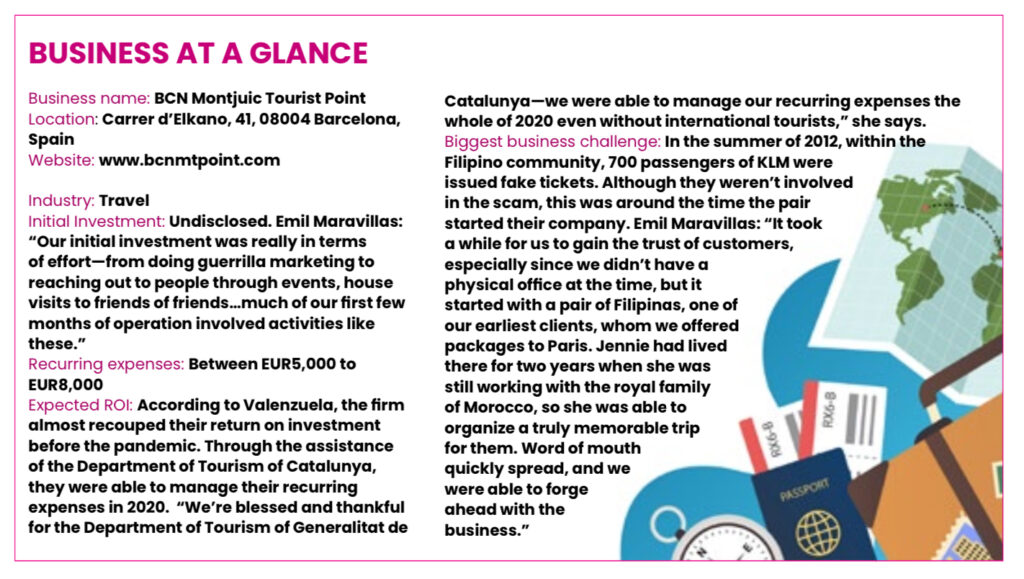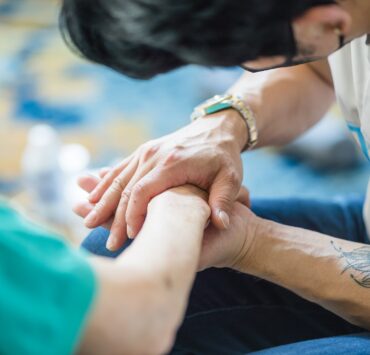How a Filipino travel agency in Spain survived the Covid-19 pandemic through retail therapy and creating new business opportunities.
While operating a travel company would be a dream for those stricken with insatiable wanderlust, taking this on during a global pandemic can be daunting. No bones about it: COVID-19 pretty much ground to a halt every nook and cranny of the travel and tourism sector. While international tourism grew by 4% in 2021, the UN World Tourism Organization reports this figure is 72% below the pre-pandemic year of 2019.
As with the rest of the world, Spain—which has always enjoyed blockbuster destination status in pre-pandemic times—had kept both its international and regional borders shut. It would have been around this time that Barcelona-based Emil Maravillas and Jennelyn Valenzuela would have already recouped the return on their investment on BCN Montjuic Tourist Point, the destination management company they had founded in April 2012. “When the pandemic came, it felt like we were starting over,” relates Valenzuela.
BCN Montjuic Tourist Point, a Filipino travel agency in Spain, began its operations as LimeBuns Travel and Tours, initially as a provider of apartamentos turisticos (tourism apartments) before AirBnb became a massive hit. They were specializing in inbound tourism, with over 95% of its clients comprising international travelers to Spain.
“We were catering…we still cater to cultural tourists, mostly travelers from the Philippines and countries home to big Filipino populations,” shares Maravillas. From 2012 to 2019, he adds, the company was “very much dependent on international tourists.”
“We had to search for a new base for our operations in the middle of the pandemic. And while we were able to transfer to a new location in July, we didn’t have any clients. So the big question was, what are we going to do now?”
Emil Maravillas, co-owner BCN Montjuic Tourist Point travel agency
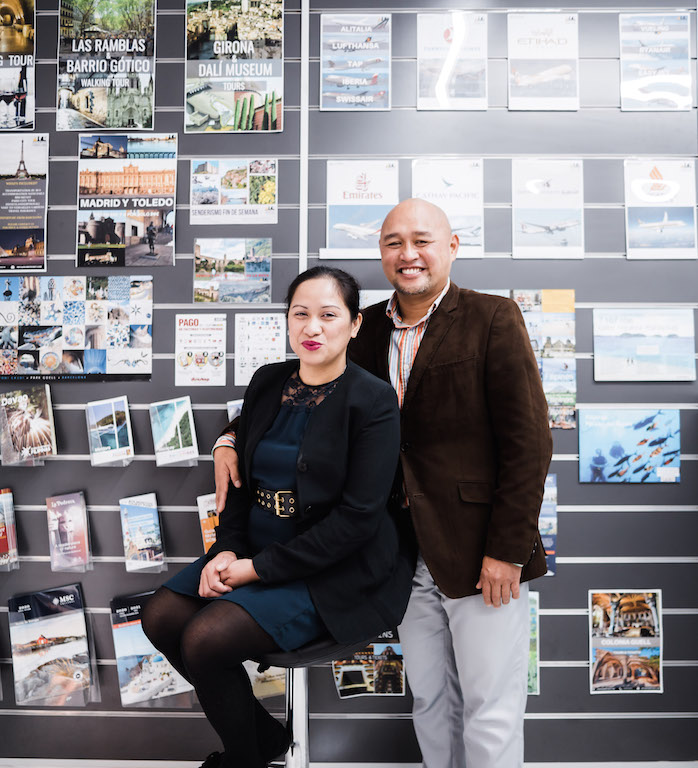
Even when Spain finally got out of its two-month home confinement in May, its regional borders were closed, such that domestic tourism from one region to another was nil. Compounding the effects of the pandemic for BCN Montjuic Tourist Point were issues with their office landlord.
“It’s a sad reality, but it happens,” says Maravillas. “We had to search for a new base for our operations in the middle of the pandemic. And while we were able to transfer to a new location in July, we didn’t have any clients. So the big question was, what are we going to do now?”
Surviving the Covid-19 pandemic
Necessity, as the old proverb goes, breeds invention. In the case of BCN Montjuic Tourist Point, their survival tactic came in the form of a good ol’ classic hit: retail therapy.
One pandemic coping mechanism Valenzuela observed among Filipinos during confinement was shopping. “Everybody wanted to shop—and they were not only shopping for essentials, but splurging on expensive brands and luxury items,” she says. As the travel company had its own vehicles, the pair decided to organize weekly “pasabays” or shopping services, in which Valenzuela would go around Barcelona’s retail centers and take photos of luxury items her fellow kababayans might like. They then created a new website, FeelPinoy.com, where they would post photos of the goods available; those interested in specific items could wire their payment using online payment platforms. “Once purchased, Emil would deliver the items,” informs Valenzuela.
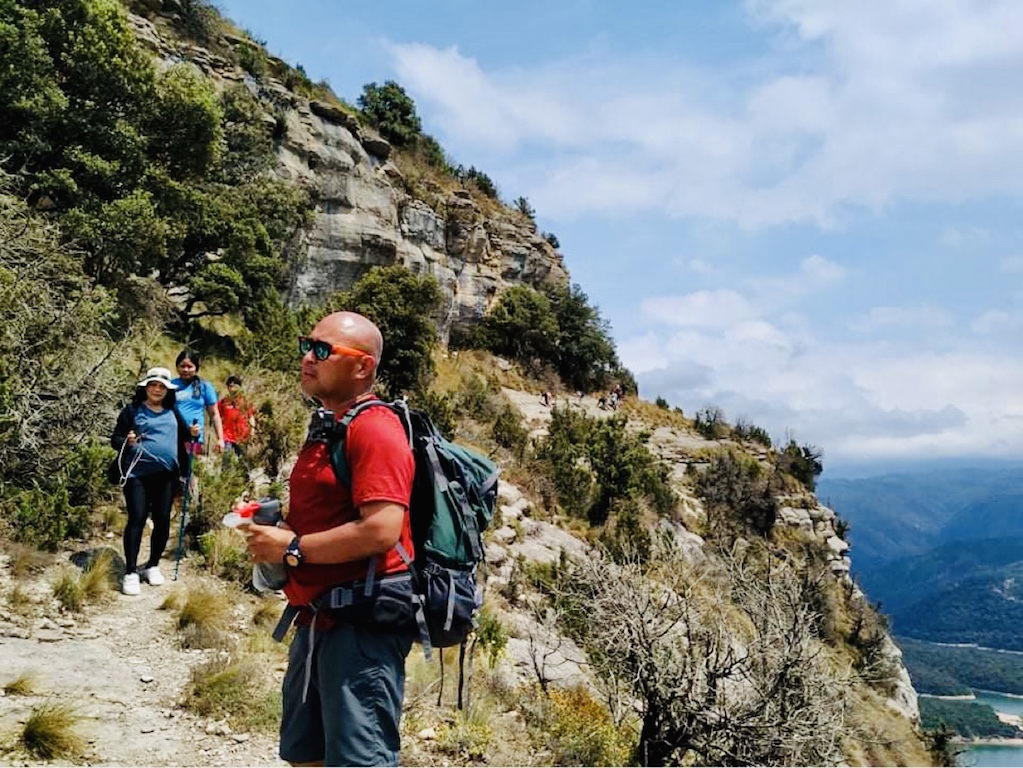
Maravillas, who normally leads tours and represents the company in travel conferences around Europe, jokes that he felt they were demoted for a while. “But the service trended so much that we eventually decided to make FeelPinoy a part of our regular business. Even after Spain opened its regional borders, we would still get orders,” he shares.
In the same period, another opportunity came knocking. Lawyers from the Philippines were reaching out to Maravillas, expressing their interest in providing online legal services to Filipinos based in Europe.
“As far as I knew, there wasn’t a Filipino company in Spain offering consultancy with lawyers based in Manila. Most Filipinos here with legal concerns would often reach out to their families back home and would have their family members relay their concerns to a lawyer. By offering our online legal consultancy, we became the bridge between Filipinos based in Spain and our partner lawyers back in Manila. That was borne out of the pandemic.”
Emil Maravillas, owner BCN Montjuic Tourist Point travel agency
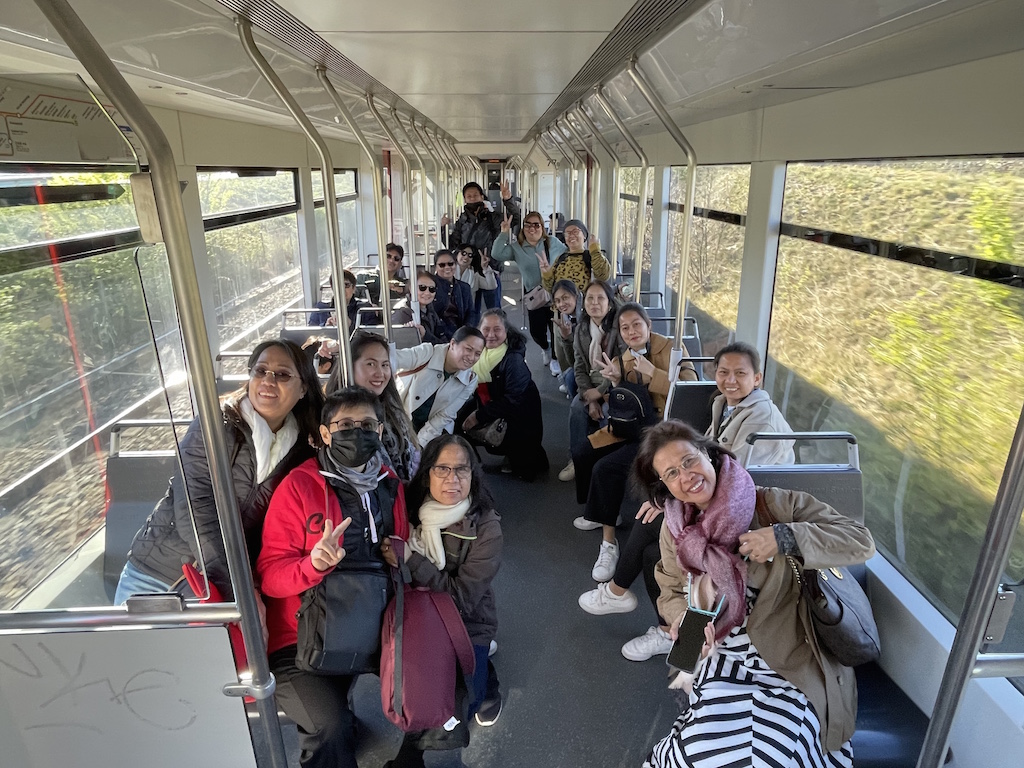
Discovering new paths
The earlier part of the pandemic had its fair share of silver linings. In the sphere of travel and tourism, people experienced the pleasures of exploring oft-ignored destinations closer to their homes. For the dynamic duo behind BCN Montjuic Tourist Point, the pandemic brought them back to where their partnership started: their shared thirst for adventure and the outdoors.
“Emil and I rediscovered our first love: adventure. During our earlier years, whenever we would have free time, we traveled as a family and we liked exploring mountains, rivers, and other off-the-beaten path destinations,” relates Valenzuela. When the pandemic saw its first summer, the pair began offering adventure-oriented tours to local tourists who were fresh off home confinement.
“The lockdowns had left people mentally exhausted, so they were eager to travel. However, as there were no vaccines yet, they were also hesitant and scared to visit more popular tourist destinations like museums or commercial centers. Instead, they wanted to go to less crowded places where they could relax and breathe in fresh air.”
Emil Maravillas, owner BCN Montjuic Tourist Point travel agency
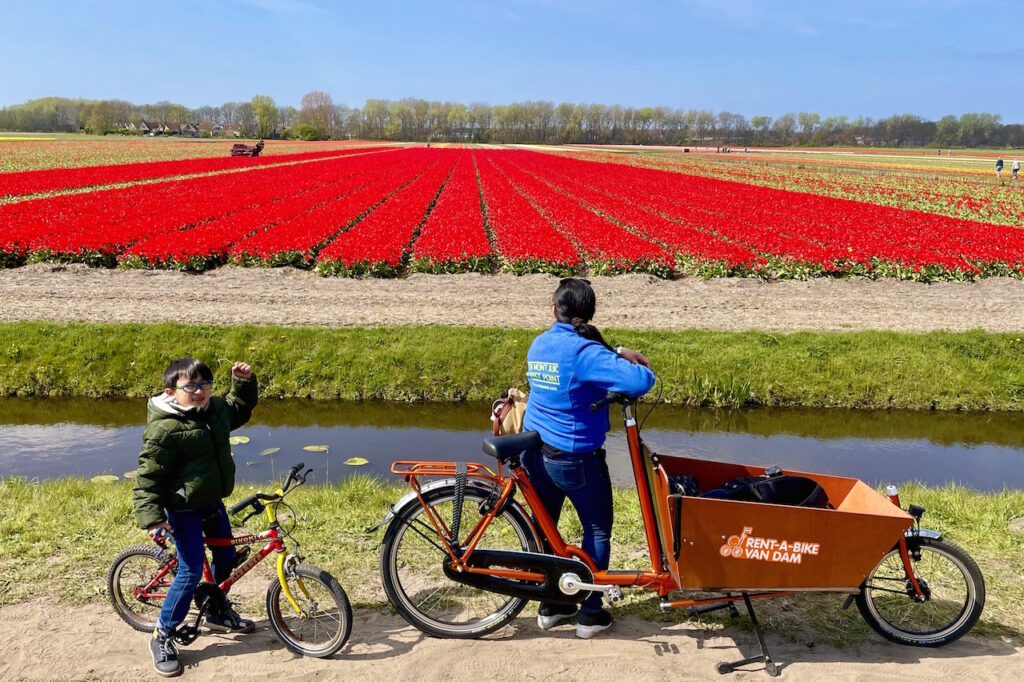
An avid hiker, Maravillas made it his mission to rediscover and explore hiking trails around Barcelona. As there were still restrictions on the number of people that could gather, the company started offering tours of nearby rivers, waterfalls, and mountains to “bubble groups”. When the government started loosening restrictions, this grew to medium-sized groups, and from only organizing a few tours here and there, word quickly spread among both the Filipino and Spanish community about a travel company offering adventure and hiking activities. “It became a weekly event. We started offering several hiking destinations, like going on a trek from the foot of Montserrat all the way to its peak, and each time would be a different endpoint. We pretty much reintroduced our first love to our clients, and it was a hit among Pinoys in Barcelona,” shares Maravillas.
Views beyond the horizon
Thrilling times are ahead for the travel and tourism industry as increasing countries around the world open their borders. This has consequently fueled a “new sense of urgency” among travelers who pretty much spent most of the pandemic confined to their homes and hometowns. A survey of 12,000 travelers across 12 countries by one-stop travel site Expedia affirms this: 65% of respondents plan on “going big” for their next trips.
“We’re getting busier because international clients are starting to come back; at the same time, we are experiencing an increase in our local tourists as the pandemic actually opened up an opportunity for us to expand our operations from being a purely inbound tourism company.”
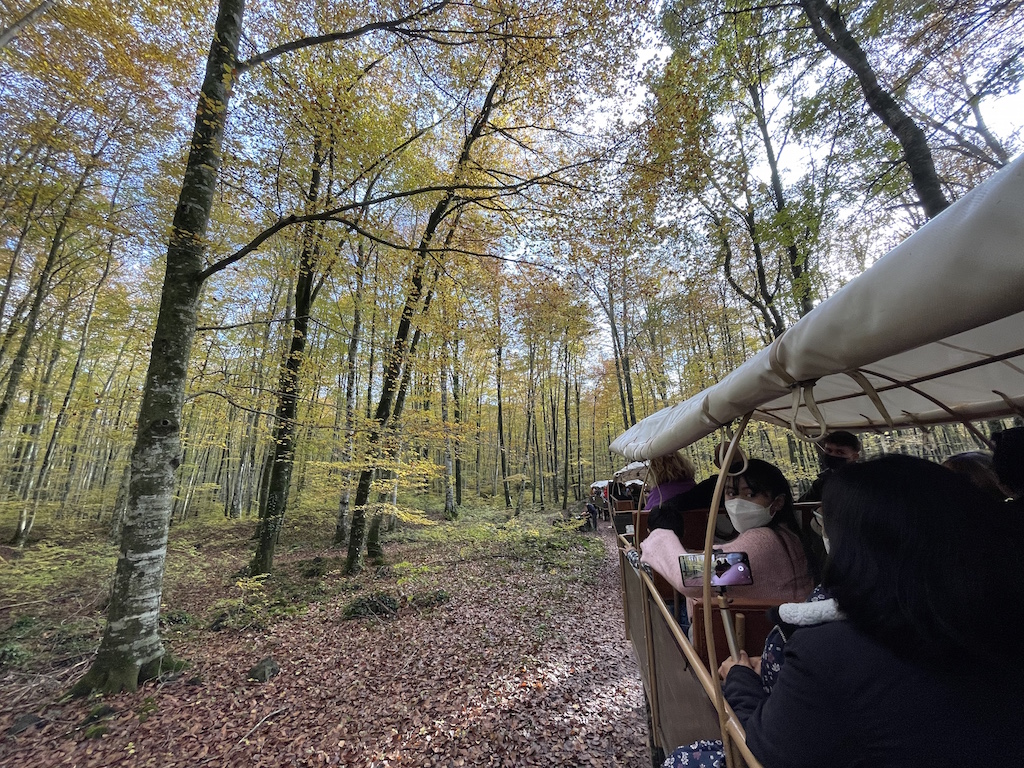
As a destination management company (DMC) the services they offer tend to be more bespoke.
Valenzuela explains that DMCs offer more specialized services. “We’re a one-stop shop for their travel needs—we customize everything according to their needs and budget. While we normally do a lot of Spain tours, we also have clients who wish to travel to other major cities in Europe, and we occasionally have clients who like spending their holidays in places like Morocco, and even to other parts of Asia,” she shares.
With the pent-up demand among travelers to go big on their next travel adventure, DMCs like BCN Montjuic Tourist Point have newfound relevance. While it’s been a pre-pandemic trend among travelers to DIY their next vacation, there is nothing quite like the services offered by local experts to ensure everything goes smoothly on a trip. It’s why the pair remains unfazed by competition from online booking platforms. “The apps are great, but for travelers who are willing and capable to pay, they need not spend their time booking their own tours because it would be much easier—and relaxing—to book through an agency like ours to arrange everything,” shares Valenzuela.
